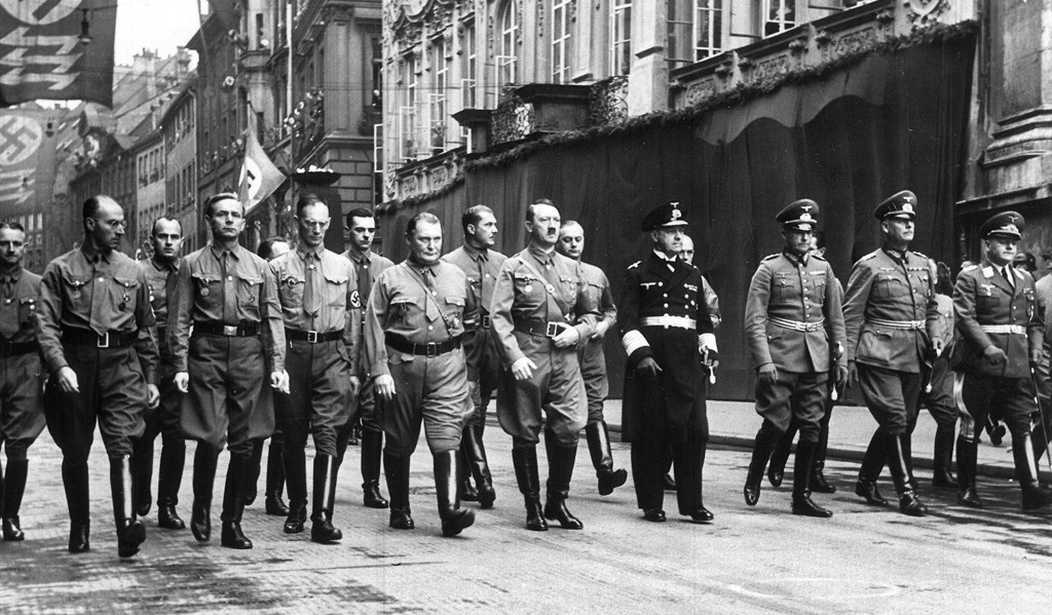Talk about holding a grudge! World War 2 ended more than seventy years ago, to the great relief of the allies. The war in Europe was particularly brutal and millions of people (the majority of them Russians) lost their lives. Now there are only a handful of people who participated in the fighting left alive. But that doesn’t mean that all has been forgotten and forgiven. This week, representatives from Poland asked the United Nations to intervene and convince Germany to engage in talks about reparations the Poles feel they are owed from Germany because of the destruction Poland experienced during the war. Thus far, Germany has failed to respond. (Fox News)
Poland on Tuesday appealed to the United Nations to step in and assist with Warsaw’s attempts to have Germany pay reparations for damages incurred during World War II.
Poland’s Deputy Minister of Foreign Affairs Arkadiusz Muliarczyk made a direct appeal to U.N. Secretary-General António Guterres, the U.N. High Commissioner for Human Rights Volker Turk and the U.N. Human Rights Council for their “cooperation and support” and claimed Berlin had been unresponsive in its calls for “compensation for the damage caused by German aggression and occupation in 1939-1945.”
“We are asking you to intervene in this matter, to create a certain platform for dialogue with Germany, which does not want to conduct this dialogue,” he said according to Polish news outlet PAP.
The reparations that Poland is seeking are not unsubstantial. They’re hoping to have the Germans pony up more than $1.3 trillion.
What specific damages are the Poles claiming? I’ve frequently mentioned here one of my father’s favorite phrases from when I was growing up. ‘Bad things happen in war.’ Much gets broken or lost. And it’s not unreasonable to expect the country that starts the war (in this case, Germany) to pay for some of the damage they caused.
But if you’re asking for reparations, you need to be able to point to specific damages, right? The Polish representatives are citing “losses in the field of culture, art, as well as historic and religious buildings.” That sounds fair enough, I suppose. The Nazis were infamous for pillaging works of art and treasure as they blasted their way westward across Europe. Some official government buildings were no doubt destroyed in Poland. But nearly all the rest of the art and treasures were looted from individuals.
With that in mind, even if Germany agrees to pay that huge sum of money, where will the reparation funds go? Will Poland find ways to compensate all of the families who were looted by the Nazis? (A horribly complex task after all of these years.) Or will they just deposit the money in their treasury?
The underlying question that goes beyond all of those issues is one that we’re dealing with in the United States to this day. How far into the future can governments be held accountable and be compelled to pay reparations for things that happened before most of the current officials were even born? Slavery was banned in America during the civil war but the government is still being asked to pay reparations to people who were never enslaved.
The situation in Germany was a bit more recent, but Germany paid heavily following the war. They did more serious “denazification” (a term now popular in Ukraine and Russia) than even seemed possible. Nazi references and support were outlawed. Nobody was allowed to display a swastica. The country was crushed and it took them decades to begin to recover. The current leadership in Germany for the past several generations not only rejects the idea of Naziism, they actively work to stamp it out. Should the government and the taxpayers of modern Germany be held financially liable for the sins of Adolph Hitler and his stormtroopers? These are all questions worth asking if the United Nations is actually going to take up Poland’s request.








Join the conversation as a VIP Member